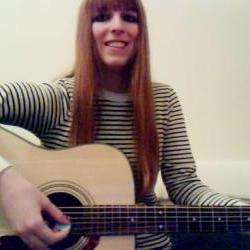Roulette has never looked so snazzy: the usual dishevelled hipsters were replaced by well-dressed audience members of all ages, wearing heels rather than flannel, drinking from wine glasses rather than beer bottles. Ironically, the performers we were about to hear are not even old enough to drink: this was the Brooklyn Youth Chorus’ annual benefit concert, featuring collaborations with Kronos Quartet and other artists. After a bit of an appetizer performed by the affiliated Young Men’s Ensemble, conducted by David Harris, the Brooklyn Youth Chorus filed into the balcony and launched into an ethereal performance of John King’s Light.
The theater was completely dark, but the music lived up to its title. The teens’ and children’s voices, directed by BYC founder Dianne Berkun-Menaker, glowed across each other from one side of the stage to the other. The two groups of voices were like clouds merging from dissonance to consonance so silkily that it was impossible to tell just when the discordance dissolved. The voices spiralled and zigzagged over and under one another and permeated the air above our heads. It was hard to believe the performers producing this difficult, mature-sounding music were so young (though the organization itself is well-established, especially since their 2005 Grammy win for their recording of John Adams’ On the Transmigration of Souls).
Their collaborators for the evening were a bit, well, older. The Kronos Quartet performed two works on their own and joined the BYC for five songs throughout the evening. Unfortunately, neither of the quartet pieces allowed the players – David Harrington, John Sherba, Hank Dutt and Jeffrey Zeigler – to shine. Omar Souleyman’s La Sidounak Sayyada (“I’ll Prevent the Hunters from Hunting You”), arranged by Jacob Garchik, was fun but unimaginative, especially as it directly followed Light. The pre-recorded beats and predictable musical gestures felt cheesy, though the lighting and visuals offered a nice contrast. The production included original projections by Laurie Olinder, lighting design by Laurence Neff, and video programming by Joshua Higgason. During the quartet’s first piece, bold-colored, flip-flopping images of hands and stars were projected onto the walls around the stage. During the second, they were framed by hippie-ish sun-like images as they played their own arrangement of a Swedish traditional tune, Tusen Tankar (“A Thousand Thoughts”), which was sweet but sounded like the sort of thing you might hear on a movie soundtrack as the main characters ruminate around a campfire after their ordeals.
The evening’s strongest moments took place when the quartet was collaborating with the BYC. Kronos is one of the major new music groups in the country, so they were more than capable of winding threads of difficult music beneath the soaring chorus (who were in turn more than capable of keeping up with a group established long before they were born). During Aleksandra Vrebalov’s delightful Bubbles, they were also joined by percussionist Thomas Kozumplik on vibraphones. The upward glissandos and lilting phrases in both voice and strings went nicely with the bubbles swimming along the walls as part of the ongoing visual projection. There is a Sound, by Richard Reed Parry of Arcade Fire, was bit more melodic and soothing, and Kronos Quartet’s arrangement of Aulis Sallinen’s haunting Vintern Var Hård (“Winter Was Hard”) seemed to end before it began.
The Brooklyn Youth Chorus, sans Kronos, also sang two movements from Shara Worden (My Brightest Diamond)’s Pyramid Songs: My Body, the Earth / Whoever You Are. These selections were consonant yet compelling, and a nice intro to the grand finish. For the world première of Julia Wolfe’s You Breathe, BYC and Kronos were joined by the Young Men’s Ensemble and an assortment of cubist snakes falling along the walls via video projection. Ms Wolfe is one of the co-founders and directors of Bang on a Can and an integral figure in the New York new music scene. Her piece was dense but repetitive, exhibiting the usual pull of her post-minimalist language. The addition of the lower voices resulted in an enchanting experience.
Finally, the night ended with two poppy pieces: first, Bryce Dessner’s Tour Eiffel for chorus, quartet, piano (Aleeza Meir) and guitar (Taylor Levine). With its Glassian arpeggios, wrenching high notes, and Eiffel Tower images (complete with fireworks), it was a sort of corny spectacle that managed to work because of the earnestness of the performers. They were even more ecstatic to be joined onstage by Richard Reed Parry and his own guitar for an encore he had written, In the Passing of Time. It was a happily naïve song, and what better way to wrap up a night of challenging new music. Most kids are probably occupied with Spanish homework or Facebook chat on an average Tuesday night, but these amazing kids were singing commissions by some of the hugest figures in the new music world.


